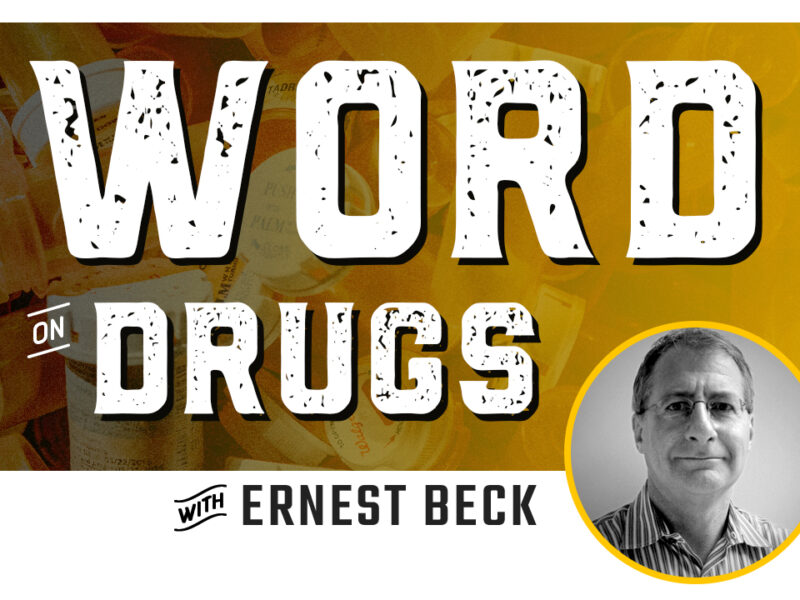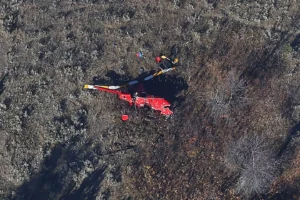THE WORD ON DRUGS: Wyoming Weighs Cannabis Reform, Looks to Legal Weed States
Voters support legalization, but leaders are reluctant to approve marijuana market
- Published In: Other News & Features
- Last Updated: Jun 15, 2023

By Ernest Beck
Special to the Wyoming Truth
By any measure, the marijuana legalization movement in the U.S. has had remarkable success ever since Colorado and Washington became the first two states to legalize the recreational use and sale of cannabis just over a decade ago. Today, an estimated 155 million Americans — about half the population — now have access to a legal, regulated, adult-use cannabis market in 23 states and Washington, D.C., with 38 states having medical marijuana programs.
Wyoming, however, remains an outlier to cannabis reform. Using pot or even being under the influence in the state can lead to fines and imprisonment. Reluctance to change is rooted in the conservative nature of the state government, according to Frank Latta, the Wyoming political director for the National Organization for the Reform of Marijuana Laws (NORML).
Efforts to legalize marijuana in the legislature have so far failed to gain traction, despite polls showing that 56% of Wyoming residents are in favor, according to a 2020 poll from the University of Wyoming Political Science Department and the Wyoming Survey & Decision Center. The same survey found that 82% of Wyoming residents agree that people convicted of possessing marijuana should not serve time in jail.
Earlier this year, NORML’s petition drive to put measures on the ballot to legalize medical marijuana and decriminalize possession of small amounts of cannabis garnered 48,000 signatures, but did not qualify for the 2024 ballot. Now NORML is launching a new referendum drive based on what Latta said is a significant shift in perceptions about marijuana along with trends in other states.
“Prohibition on any level doesn’t work, and people are starting to realize that,” Latta, a former mayor of Gillette and state legislator, told me. “People are starting to figure out that we need to talk about marijuana in different formats.”
They also see what’s happening in neighboring states: Along with Colorado, marijuana is now legal in Montana, and would be in South Dakota if the state’s supreme court hadn’t nullified a cannabis legalization referendum. Latta suggests that law enforcement and county attorneys in Wyoming are also likely to support legalization, considering it costs the state $7,000 to prosecute every pot citation—a “waste of money,” as he put it.
What might legalization look like in Wyoming? Other states can serve as a guide. On the positive side, legalizing pot has generated billions of dollars in tax revenue for education, mental health and critical drug treatment initiatives. Arrests for pot possession have plummeted, and thousands of marijuana-related convictions have been expunged, mostly among people of color who were disproportionately harmed during the decades-long War on Drugs. Meanwhile, entrepreneurs who open dispensaries or run grow operations are creating jobs as sales take off.
Yet, in many ways, the rapid commercialization of marijuana hasn’t gone exactly as planned. In many states, including California, the black market that was supposed to dwindle with legalization is still going strong. What’s more, corruption and worker abuse are widespread in that state’s cannabis industry, according to a Los Angeles Times investigation.
Concerns are rising about the dangers associated with frequent pot use—especially today’s more powerful products that can contain up to 95% THC (the psychoactive component of marijuana), compared with about 4% in 1995, according to the U.S. Drug Enforcement Agency.
In Colorado, doctors have expressed alarm at the growing number of violent psychotic episodes related to marijuana use. An expanding body of scientific research links cannabis consumption with a spike in cases of depression, anxiety and suicidal intentions, especially among vulnerable populations such as young people. Studies also find a high risk of adverse neonatal outcomes among women who use marijuana while pregnant.
One upside of state-led legalization (pot is still illegal on the federal level) is that state governments can impose their own laws and regulations, such as licensing dispensaries and warning consumers of potentially risky products. For example, Vermont and Connecticut have imposed caps on THC levels, while other states have not.
But even when such measures exist to restrict sales to those over 21 or from black market vendors, they are not always effective. In a recent article, the New York Timesinterviewed dozens of teachers in New York City public and private schools who said classrooms were in disarray as more pupils showed up late and high. Pot is more accessible than ever, the survey found, due to the proliferation of unlicensed smoke shops and the availability of vape pens and edible products. Equally troubling, it said that younger and younger students were smoking pot at school and throughout the day.
For his part, Latta acknowledged that there will likely be “unintended consequences and hurdles to overcome” when Wyoming eventually legalizes and establishes its own market structure. He said that state liquor licensing laws could be a model for how to sell pot, determine which products can be sold and keep marijuana away from underage consumers.
Statewide legalization in Wyoming wouldn’t necessarily mean that marijuana would be available everywhere. States that legalize typically include an opt-out clause in legislation allowing municipalities to ban dispensaries or on-site consumption. While polls show that Americans generally favor legalization, they don’t necessarily want it in their backyard: In California, 56% of cities and counties opted out of any form of cannabis business; in New York, nearly half of municipalities rejected cannabis retail. In many states, opting out means forfeiting tax revenues from sales. If that provision is included in Wyoming legalization, it might help convince communities to get on board, Latta believes.
The rush to legalize marijuana slowed somewhat during the pandemic. And the Biden administration has not been proactive on this matter, except to issue an unconditional pardon for all federal convictions of simple marijuana possession. There is no going back to the bad old days of marijuana bans. But when legalization moves ahead in Wyoming, it is important to consider both the needs of those who want to use the drug and those who don’t, and to enact practical, common sense regulations that broadly protect public health.
In my opinion, nobody should ever go to jail for smoking a joint. But we must also recognize the potential risks of marijuana to ensure consumer safety.
Ernest Beck writes about drug policy. He is the former communications lead for the Rosenthal Center for Addiction Studies in New York.













